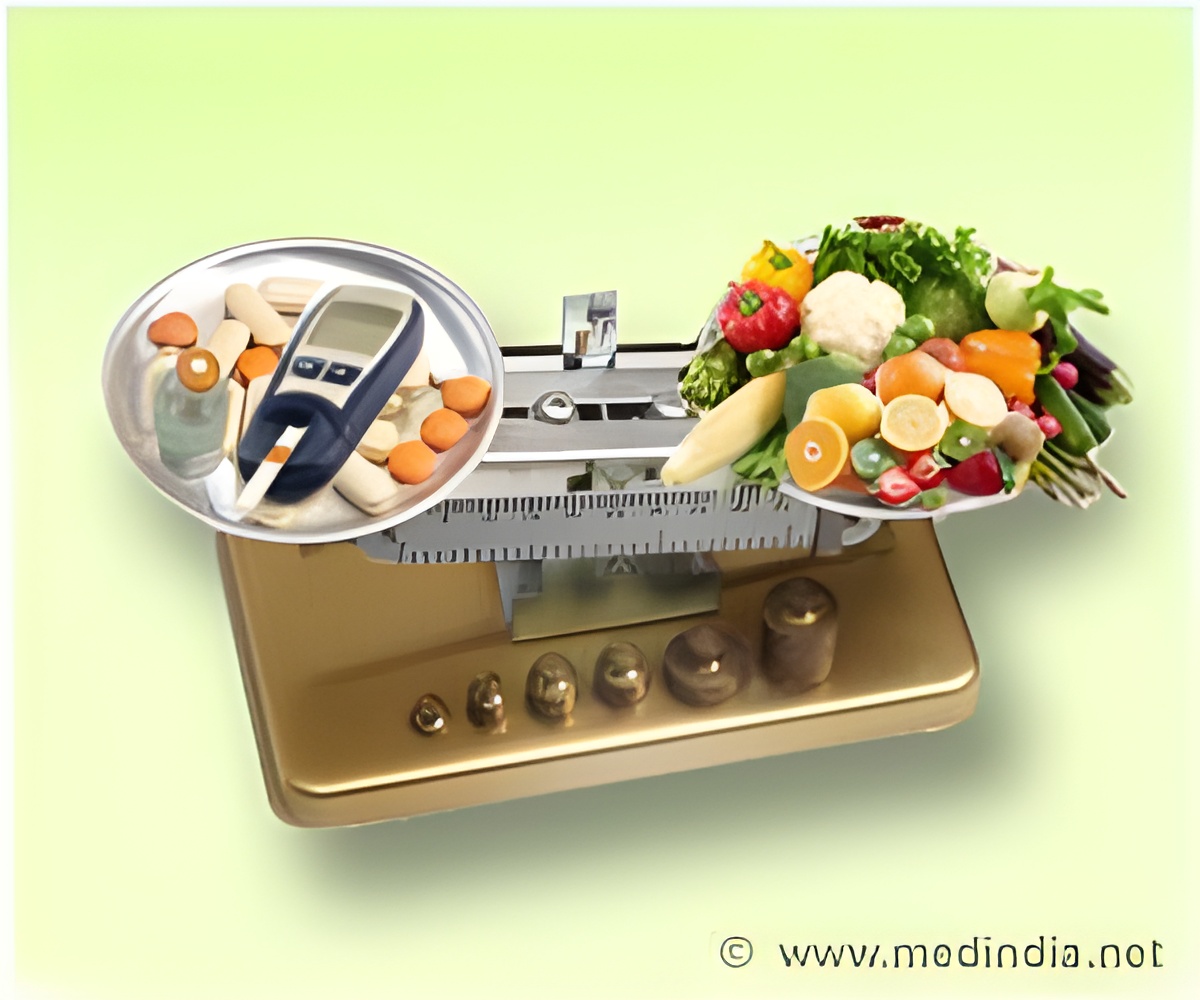Long gaps between meals that range from 12 to 15 hours may lead to metabolic changes in the body, which can pose serious health problems for diabetes patients.

‘Diabetics while fasting can either face hypoglycemia -- a sudden fall in blood sugar levels -- which can cause seizures and unconsciousness or hyperglycemia -- increase in blood sugar -- which may cause blurry vision, headaches, increased fatigue and thirst.’





According to health experts, such long gaps between meals that range from 12 to 15 hours may lead to metabolic changes in the body, which can pose serious health problems for diabetes patients. "If you are diabetic but still want to keep the fast during Ramadan, it is always better to consult your doctor to take all necessary precautionary measures while fasting," Vikas Ahluwalia, Director (Diabetes and Obesity Center) at the Max Super Speciality Hospital, Saket, told IANS.
Diabetes is a health condition that occurs when sugar rises in the blood as a result of deficiency in the insulin hormone or the resistance of the body cells leading to the accumulation of glucose in the blood.
Restriction of fluid intake during such fasts can result in dehydration as well as fluctuations in sugar levels.
"Long fasting, combined with food intake two-three times over a short span of time may cause wide fluctuation in sugar levels," Rakesh Kumar Prasad, Senior Consultant (Department of Endocrinology) at Fortis Hospital, Noida, told IANS.
Advertisement
"Patients are required to monitor their blood glucose level at regular intervals. In case a patient is on insulin, there may be a need to change its dosage," Shehla Shaikh, Consultant (Endocrinologist) from Mumbai's Wockhardt Hospitals, pointed out.
Advertisement
They can also develop thrombosis, which leads to formation of a blood clot.
"Doctors and patients must work together on how to organise medication and diet schedules so that diabetes is managed effectively during the 30 days of Ramadan," said A. Ramachandran, founder of Chennai's Dr. A. Ramachandran's Diabetes Hospital,. Ideally, one should consult a doctor a month in advance and follow the advice given on diet, insulin dosage and any other medication prescribed, the doctors suggested.
It is essential for diabetic patients to control the intake of high carbohydrate foods, as they affect the sugar level particularly for people with Type 2 diabetes.
Consumption of carbohydrates such as sugar, rock sugar, palm sugar, honey and sweetened condensed milk should be limited.
However, carbohydrates with a low glycemic index such as brown rice, full grain bread and vegetables are better options than white rice, non-full grain bread or potatoes.
While breaking the day-long fast, the body needs to be well hydrated and one should drink sugar-free and decaffeinated fluids.
"It is important for a diabetic to take natural sugar in the form of fruits instead of juices," renowned dietician and nutritionist Ritika Samaddar told IANS.
At Sehri one should eat food in small quantities. Avoid sweets, fried snacks and foods that have high salt or sugar content. Also, one should not sleep soon after dinner. A minimum two-hour interval should be maintained.
"It is important to take a balanced meal with 20 percent to 30 percent of it as protein. A good idea would be to include fruits, vegetables and salads in your meals and to use healthier cooking methods such as baking and grilling," Ramachandran maintained.
The Sehri should include more proteins and less carbohydrate with lots of fruits, whole grain bread, whole grain low sugar cereals, beans and lentils.
"Combine the pre-dawn food with proteins like eggs or dal which gradually releases energy through the day. To make up for the whole day, a wholesome meal consisting of carbohydrates, proteins and healthy fats is important," Samaddar explained.
"For diabetic patients, the decision to fast should be made keeping in mind religious guidelines for exemption and after careful medical consultation to ensure a safe and healthy Ramadan," Ahluwalia noted.
Source-IANS













